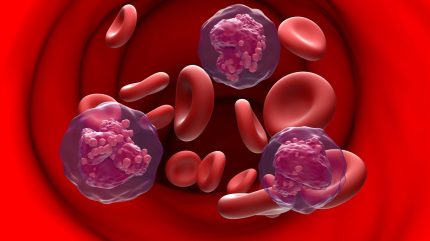
The National Health Service (NHS) England has announced the routine commissioning of Daiichi Sankyo’s quizartinib for acute myeloid leukaemia (AML) patients with the FLT3-ITD mutation.
The decision, facilitated by the Cancer Drugs Fund, will enable immediate access to the life-extending daily tablet, which has been shown to improve remission and survival rates significantly.

Discover B2B Marketing That Performs
Combine business intelligence and editorial excellence to reach engaged professionals across 36 leading media platforms.
The treatment, now available for prescription, is intended to be used in conjunction with chemotherapy for newly-diagnosed adult patients and may be continued as a maintenance treatment for up to three years to minimise the relapse risk.
For patients showing significant improvement following quizartinib treatment, a stem cell transplant will be offered.
For those ineligible for stem cell transplants, the tablet could still offer a substantial benefit by prolonging life.
The UK’s Medicines and Healthcare products Regulatory Agency previously confirmed the asset’s safety and efficacy, citing a median overall survival of 31.9 months with quizartinib against just 15.1 months in the placebo arm.

US Tariffs are shifting - will you react or anticipate?
Don’t let policy changes catch you off guard. Stay proactive with real-time data and expert analysis.
By GlobalDataQuizartinib works by specifically inhibiting the enzyme that drives uncontrollable cell growth in the bone marrow associated with AML with the FLT3-ITD mutation.
NHs England’s decision to offer the product follows a cost-effectiveness assessment by the National Institute for Health and Care Excellence (NICE), which endorsed its use after Daiichi Sankyo proposed a reasonable price.
NHS Cancer national clinical director Professor Peter Johnson stated: “It’s very good news that patients with this type of leukaemia now have an option that helps their chemotherapy to work better, boosting their chance of remission and long-term survival and offering them precious extra time with their families and friends.
“People who have acute myeloid leukaemia and the specific FLT-3 ITD abnormality will be able to take this oral treatment, quizartinib, which the NHS has fast-tracked.
“The NHS in England has an enviable track record of making innovative treatments available and this is the latest in a long list of new cancer drugs to help people live with and beyond cancer, making life-changing differences to people affected by cancer and their families across the country.”




